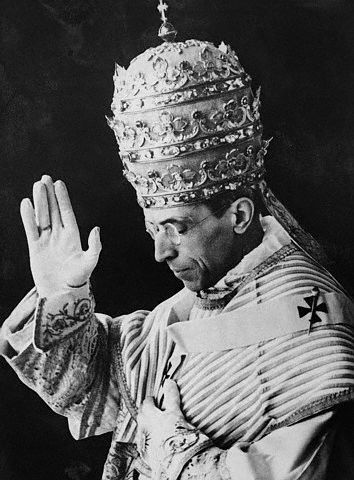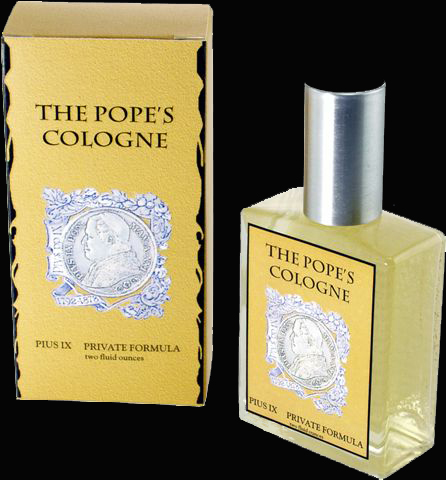 The canonization process for the wartime pontiff is an ongoing source of drama–and tension.
The canonization process for the wartime pontiff is an ongoing source of drama–and tension.
The latest dust-up concerns remarks by Fr. Peter Gumpel, the Jesuit promoter for Pius’ cause for sainthood, who blamed Jewish pressure for the delay in the controversial pope’s beatification. As the CNS story has it:
Speaking at a Vatican bookstore in Rome June 19, Father Gumpel said Pope Benedict has not signed the decree recognizing the heroic virtues of Pope Pius XII because representatives of several Jewish groups have told him “loud and clear” that “if you do the least thing in favor of the cause of Pius XII, relations between the Catholic Church and the Jews are definitively and permanently compromised.”
The Vatican quickly tried to distance itself from Gumpel’s statements, as Jesuit Father Federico Lombardi, the Vatican spokesman, said that “signing the decrees regarding beatifications are the exclusive competence of the pope, who must be left totally free in his evaluations and decisions.”
“If the pope thinks that more study and reflection on the cause of Pius XII is required,” the statement continued, according to CNS, “this position must be respected without unjustified and inopportune interference.”
But as Father Gumpel said, “Sooner or later, the beatification and then the canonization will go through.”
For a more modulated view of Pius XII–and from the Jewish side–read Michael Paulson’s interview in the Globe with Mordechay Lewy, the Israeli ambassador to the Holy See, who spoke at Boston College last week. Lewy addressed many issues, but I think his comments on Pius get it as right as possible:
Q: Does Israel have a role to play in the canonization of Pius XII?
A: Canonization is not our concern. We don’t believe in beatification. What concerns us is the historical role of Pius XII. This is a real issue which has been, to my mind, deliberately, but still mistakenly, combined with the matter.
Q: Do you have a position on Pius XII’s historic role?
A: Historically speaking, I think he was neither a hero nor a villain. It is probably the right thing to think of a more balanced view of him. The problem is that we are looking at him through the filter of a post-conciliar church. He is definitely a protagonist of the pre-conciliar church, and the pre-conciliar church has, as its main assignment, to seek all possible means to salvation for its own flock. He is not a pope for the Jews; he is not a pope for the Mohammedans; he is not a pope for everyone who was not Catholic. ‘My main task is to save the souls of the Catholic Church.’ This is why he did a concordat with the Germans. He didn’t make a concordat because he was Hitler’s pope. This is a mistaken concept. He did it in order to survive, to make it happen that the church can survive a godless regime. This was the term that they used. He tried also to make a concordat with the Soviet Union, but the Russian Orthodox Church didn’t like this idea. It is wrong to look for any affinity between him and the Nazis.
It is also wrong to say that he didn’t save Jews. Everybody who knows the history of those who were saved among Roman Jewry knows that they hid in the church, they hid in Roman monasteries, in the Vatican itself people were hidden. To look for written evidence, an order of the pope, well…this is odd. This is not how it works.
Q: So I hear you explaining why he was not a villain. Why was he not a hero?
A: He was very, very timid. He was a diplomat. This is why the curia is very much advocating for him as a saint. He was brought up politically by Benedict XV, who was the protagonist of neutrality during the First World War, wanting to keep up relations with everyone in order to get involved in mediation, humanitarian aid, good things. This is the concept with which Pius XII, as a pupil of Benedict XV, approached the Second World War. He misread, completely, the situation. He can not be blamed for it. He was who he was, with shortcomings. To be neutral meant for him to be quiet, to rely on quiet diplomacy. The main argument is why he was silent, not why he didn’t help. And by the way, after the war, he was silent as well. If we take the whole tenure, before the war and after the war, he was silent all the time. He never spoke up. He was saying…the church was victim of those regimes. With that mindset, there’s not much space to have a place to have another victim, if you feel yourself a victim. And, by the way, that’s our problem in the Middle East.

